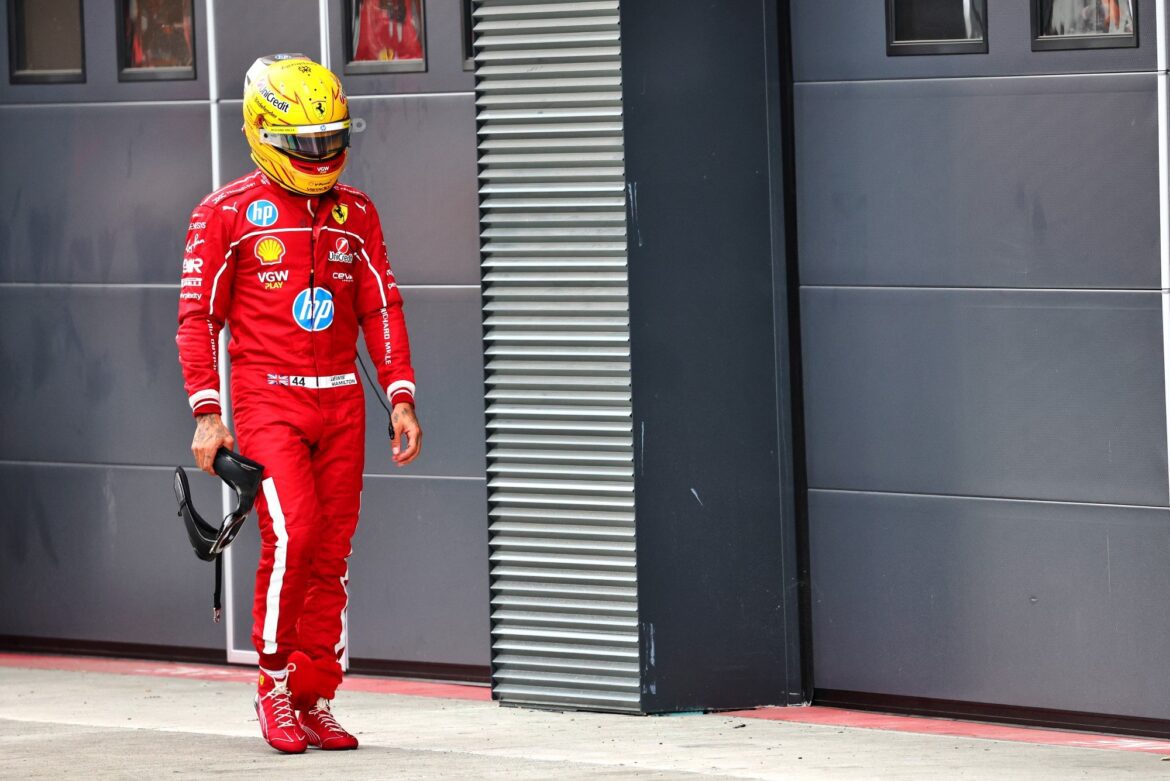Lewis Hamilton Faces Criticism from Former Haas Boss Guenther Steiner
Lewis Hamilton, the seven-time Formula 1 champion, recently found himself in hot water after expressing frustration with his performance during the qualifying session for the Hungarian Grand Prix. Following an early exit from the qualifying rounds, Hamilton described himself as "useless," a remark that did not sit well with Guenther Steiner, the former team principal of Haas Racing. This incident brought to light the pressures and challenges that even the most successful athletes can face, and it raised questions about the appropriate ways to handle setbacks in competitive sports.
Hamilton’s Disappointing Qualifying Session
During the qualifying rounds at the Hungaroring, Hamilton faced a challenging session that saw him start from 12th position. Despite his remarkable record, which includes the most pole positions and victories at this particular circuit, his performance left much to be desired. After the session concluded, he expressed his disappointment candidly, sparking a wave of reactions from fans and experts alike.
Hamilton’s self-criticism seemed to stem from the mounting pressure he faces as a driver for Mercedes, a team that has enjoyed significant success in recent years. His comments about needing a new driver at Ferrari only added fuel to the fire of speculation regarding his current state of mind and future in the sport.
Steiner’s Reaction to Hamilton’s Comments
In a recent appearance on the Red Flags Podcast, Guenther Steiner shared his thoughts on Hamilton’s remarks. He expressed his disbelief that a driver of Hamilton’s caliber would publicly label himself as "useless." Steiner emphasized that while every athlete faces struggles, the way one chooses to articulate those struggles matters significantly.
Steiner stated, “How can someone who is a seven-time world champion say ‘I’m useless’? It’s not about his performance; I’m not judging that. He’s fighting, like all of us have at some point in our lives, but making such a statement publicly is the wrong attitude.” This criticism highlights the expectations placed on elite athletes and the importance of maintaining a positive mindset, even in the face of adversity.
The Importance of Mental Resilience
Hamilton’s situation underscores the critical role of mental resilience in professional sports. Athletes are often under immense pressure to perform, and the psychological toll can lead to moments of self-doubt. Steiner’s comments suggest that he believes Hamilton should focus on rebuilding his confidence rather than displaying vulnerability.
“Were I a seven-time world champion, I would have enough confidence to know I’m not useless. I would just need to work harder to find my rhythm again,” he added, highlighting the necessity for athletes to channel their frustrations into productive efforts rather than public lamentations.
The Challenges of Maintaining Performance
The world of Formula 1 is incredibly competitive, and the pressure to perform can be overwhelming. Athletes like Hamilton are constantly battling not only their opponents but also the expectations of fans, sponsors, and team management. In this high-stakes environment, maintaining peak performance can be a daunting task, and setbacks can trigger a wide range of emotional responses.
Hamilton’s recent comments may reflect a moment of frustration, but they also expose a deeper issue that many athletes face: the fear of failure. This fear can manifest in various ways, affecting performance and overall well-being. The ability to manage these feelings is crucial for sustained success in the sport.
The Role of Public Perception
Public perception plays a significant role in an athlete’s career. When figures like Hamilton make statements that seem to undermine their abilities, it can lead to backlash from fans and former competitors. Steiner’s critique is a reminder that athletes are constantly in the public eye, and their words can have lasting implications.
Athletes must navigate this complex landscape while staying true to themselves. The challenge lies in finding the balance between authenticity and the expectations of the public. Hamilton’s candidness about his struggles may resonate with some fans, but it also opens the door for criticism from others who expect a champion to maintain a certain level of confidence.
The Path Forward for Hamilton
As Hamilton navigates this challenging period, the key will be his ability to refocus and find his footing on the track. The support of his team, fans, and the broader F1 community will be vital as he seeks to overcome this hurdle. In competitive sports, resilience and the capacity to learn from setbacks can define an athlete’s legacy.
Hamilton’s journey is a testament to the fact that even the most accomplished athletes encounter difficulties. How they respond to those challenges often shapes their careers and influences their standing within their sport. For Hamilton, the path forward will require a concerted effort to regain his confidence and competitive edge.
Conclusion
In the world of Formula 1, where every fraction of a second counts, the mental state of a driver can greatly impact their performance. Hamilton’s experience serves as a reminder that mental resilience is just as important as physical skill. While Steiner’s critique may seem harsh, it reflects the high standards expected of elite athletes. As Hamilton moves forward, the focus will need to be on reclaiming his confidence and demonstrating the tenacity that has defined his illustrious career.
This incident will likely be just one chapter in Hamilton’s ongoing story in Formula 1, but it emphasizes the importance of mindset and resilience in the face of adversity. The road ahead may be challenging, but with determination and hard work, Hamilton can reclaim his position at the front of the pack.
